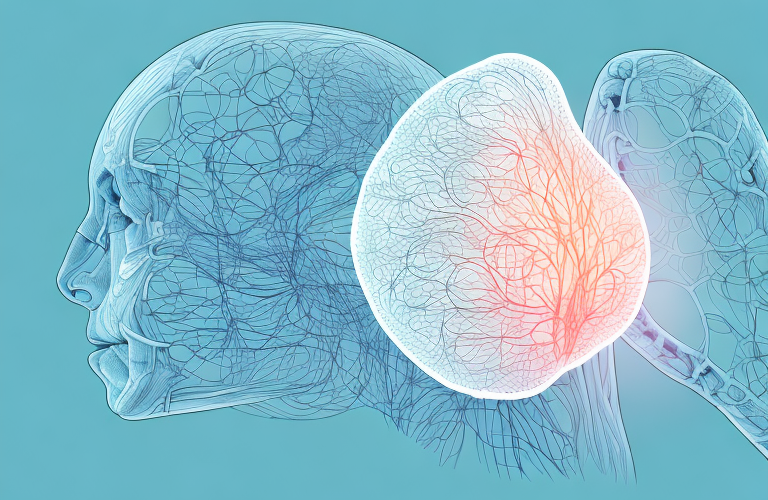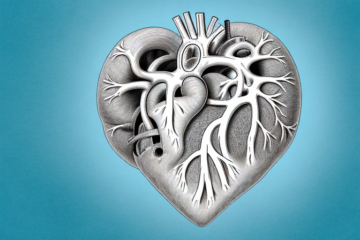Hypophosphatemia is a medical condition that occurs when the levels of phosphate in the blood fall below the normal range. Phosphate is an essential mineral that is crucial for the normal functioning of the body, including the formation of bones and teeth, energy metabolism, and nerve function. Hypophosphatemia can cause a wide range of symptoms, including muscle weakness, bone pain, and fatigue. In this article, we will discuss the definition, causes, symptoms, and treatment options for hypophosphatemia.
Understanding Hypophosphatemia: Definition and Explanation
Hypophosphatemia is a condition characterized by low levels of phosphate in the blood. In healthy individuals, the normal range of phosphate in the blood is between 2.5-4.5 mg/dL. When the levels fall below 2.5 mg/dL, it is considered hypophosphatemia. Phosphate is a mineral that is essential for the normal functioning of the body. It plays an important role in energy metabolism, bone formation, and nerve function. Hypophosphatemia can occur due to a variety of factors, including poor diet, kidney disease, and certain medications.
One of the most common causes of hypophosphatemia is malnutrition. Individuals who do not consume enough phosphate-rich foods, such as dairy products, meat, and fish, are at risk of developing this condition. In addition, people who suffer from alcoholism or anorexia nervosa may also experience hypophosphatemia due to their poor dietary habits.
Another factor that can contribute to hypophosphatemia is the use of certain medications. Drugs such as antacids, diuretics, and anticonvulsants can interfere with the absorption of phosphate in the body, leading to low levels in the blood. Patients who are taking these medications should be monitored closely by their healthcare provider to ensure that their phosphate levels remain within a healthy range.
Signs and Symptoms of Hypophosphatemia: What to Look Out For
The symptoms of hypophosphatemia can vary from person to person, and often depend on the severity of the condition. Some common symptoms of hypophosphatemia include muscle weakness, bone pain, fatigue, and loss of appetite. In severe cases, hypophosphatemia can cause seizures, confusion, and coma. It is important to seek medical attention if you experience any of these symptoms to prevent complications.
In addition to the symptoms mentioned above, hypophosphatemia can also cause respiratory failure, heart failure, and rhabdomyolysis (a breakdown of muscle tissue). It can also lead to osteomalacia, a condition where bones become soft and weak, and increase the risk of fractures. Hypophosphatemia can be caused by a variety of factors, including certain medications, malnutrition, and underlying medical conditions such as kidney disease. Treatment options include phosphorus supplements and addressing the underlying cause of the condition.
What Causes Hypophosphatemia: Common Triggers and Risk Factors
There are a number of factors that can contribute to the development of hypophosphatemia. Some common causes include poor diet, kidney disease, certain medications, and hormonal imbalances. Individuals who suffer from alcoholism, eating disorders, or certain genetic disorders are also at increased risk of developing hypophosphatemia. If you are at risk of developing hypophosphatemia, it is important to talk to your healthcare provider about preventative measures.
In addition to the aforementioned causes, hypophosphatemia can also be triggered by excessive sweating, which can lead to a loss of phosphorus through the skin. This is particularly common in athletes and individuals who work in hot environments. Other less common causes of hypophosphatemia include certain types of cancer, liver disease, and chronic diarrhea. It is important to identify the underlying cause of hypophosphatemia in order to properly treat the condition.
Who’s at Risk for Hypophosphatemia? Age, Genetics, and Other Factors
Individuals of any age can develop hypophosphatemia, but some groups are at higher risk than others. Children and the elderly are at increased risk due to differences in metabolism and decreased absorption of phosphate. Individuals with certain genetic disorders, such as X-linked hypophosphatemia, are also more likely to develop hypophosphatemia. It is important to speak with a healthcare provider if you fall into any of these categories, as preventative measures and early detection can significantly improve outcomes.
Other factors that can increase the risk of hypophosphatemia include chronic alcoholism, malnutrition, and certain medications such as antacids and diuretics. Chronic alcoholism can lead to decreased absorption of phosphate, while malnutrition can result in inadequate intake of phosphate. Certain medications can also interfere with the body’s ability to absorb or retain phosphate, leading to hypophosphatemia.
In addition, individuals with certain medical conditions such as kidney disease, hyperparathyroidism, and certain types of cancer may also be at increased risk for hypophosphatemia. These conditions can affect the body’s ability to regulate phosphate levels, leading to a deficiency. It is important for individuals with these conditions to work closely with their healthcare provider to monitor their phosphate levels and take appropriate measures to prevent hypophosphatemia.
Diagnosing Hypophosphatemia: Tests and Exams to Expect
If you are experiencing symptoms of hypophosphatemia, your healthcare provider may perform a number of tests and examinations to determine the cause of your condition. These may include blood tests to measure phosphate levels, as well as tests to assess kidney function and other factors that may contribute to hypophosphatemia. It is important to be honest with your healthcare provider about your medical history, lifestyle habits, and any medications that you are taking to ensure an accurate diagnosis.
In addition to blood tests and kidney function tests, your healthcare provider may also perform imaging tests such as X-rays or CT scans to evaluate the bones and identify any abnormalities that may be contributing to hypophosphatemia. They may also perform a physical exam to check for signs of muscle weakness, bone pain, or other symptoms associated with hypophosphatemia.
Once a diagnosis of hypophosphatemia has been made, your healthcare provider may recommend a treatment plan that may include dietary changes, supplements, or medications to help increase phosphate levels in the body. It is important to follow your healthcare provider’s recommendations and attend all follow-up appointments to monitor your progress and ensure that your treatment plan is effective.
Complications of Hypophosphatemia: Short-Term and Long-Term Risks
Hypophosphatemia can cause a number of short-term and long-term complications. In the short-term, it can cause muscle weakness, respiratory failure, and cardiac arrest. In the long-term, it can lead to bone demineralization, osteomalacia, and rickets. Individuals with severe or chronic hypophosphatemia may also be at increased risk of infections and other complications. It is important to seek treatment for hypophosphatemia to prevent these complications from occurring.
In addition to the aforementioned complications, hypophosphatemia can also lead to neurological symptoms such as confusion, seizures, and coma. This is because phosphorus plays a crucial role in the functioning of the nervous system. Furthermore, hypophosphatemia can also cause anemia, as phosphorus is necessary for the production of red blood cells. Therefore, it is important to monitor phosphorus levels in individuals with certain medical conditions such as kidney disease, alcoholism, and malnutrition, as they are at higher risk of developing hypophosphatemia.
Treatment Options for Hypophosphatemia: Medications, Diet, and Lifestyle Changes
The treatment options for hypophosphatemia depend on the underlying cause of the condition. In mild cases, dietary changes and lifestyle modifications may be enough to improve phosphate levels. However, in more severe cases, medications may be necessary. Some common medications used to treat hypophosphatemia include phosphate supplements, vitamin D supplements, and calcitonin. Your healthcare provider will work with you to determine the best treatment plan for your individual needs.
In addition to medications, there are several dietary changes that can help improve phosphate levels in individuals with hypophosphatemia. Foods that are high in phosphorus include dairy products, meat, fish, and poultry. Increasing the intake of these foods can help improve phosphate levels. However, it is important to consult with a healthcare provider or registered dietitian before making any significant changes to your diet.
Lifestyle modifications can also play a role in the treatment of hypophosphatemia. Regular exercise can help improve bone health and increase phosphate levels. Additionally, avoiding alcohol and smoking can help prevent further damage to the kidneys, which can contribute to low phosphate levels.
Medications for Hypophosphatemia: Pros and Cons of Different Drugs
There are a number of medications that can be used to treat hypophosphatemia. Phosphate supplements are often used to increase phosphate levels in the blood, while vitamin D supplements can help with phosphate absorption. Calcitonin is another medication that can help regulate phosphate levels. However, like all medications, these drugs have potential side effects and risks. It is important to speak with your healthcare provider about the pros and cons of these medications before starting treatment.
One potential side effect of phosphate supplements is gastrointestinal upset, including nausea, vomiting, and diarrhea. Vitamin D supplements can also cause gastrointestinal symptoms, as well as headaches and fatigue. Calcitonin may cause flushing, nausea, and vomiting, and can also increase the risk of developing osteoporosis.
In addition to medication, dietary changes can also help manage hypophosphatemia. Foods high in phosphorus, such as dairy products, meat, and fish, can help increase phosphate levels. However, it is important to balance phosphorus intake with calcium intake, as too much phosphorus can lead to calcium depletion and other health problems. Your healthcare provider can help you develop a balanced diet plan to manage your hypophosphatemia.
Dietary Changes for Hypophosphatemia: Foods to Eat and Avoid
Dietary changes can be an effective way to increase phosphate levels in the blood. Foods that are rich in phosphate include dairy products, meat, fish, nuts, and legumes. However, certain foods can inhibit phosphate absorption, such as foods high in calcium and excessive amounts of vitamin D. Your healthcare provider may recommend a specific diet plan based on your individual needs and medical history.
In addition to dietary changes, it is important to address any underlying medical conditions that may be contributing to hypophosphatemia. For example, if the condition is caused by a medication, your healthcare provider may need to adjust your dosage or switch to a different medication. If the condition is caused by a vitamin deficiency, your healthcare provider may recommend supplements to help increase phosphate levels.
It is also important to monitor your phosphate levels regularly through blood tests. Your healthcare provider may recommend frequent testing to ensure that your phosphate levels are within a healthy range. If your levels remain low despite dietary changes and other interventions, your healthcare provider may need to explore other treatment options, such as intravenous phosphate therapy.
Lifestyle Modifications for Hypophosphatemia: Exercise, Rest, and More
Lifestyle modifications can also play a role in the treatment of hypophosphatemia. Getting regular exercise can help maintain bone density and prevent muscle weakness. Rest and proper sleep are also important for overall health and recovery. Your healthcare provider may recommend specific lifestyle modifications based on your individual needs and medical history.
In addition to exercise and rest, maintaining a healthy diet is also important for managing hypophosphatemia. Foods rich in phosphorus, such as dairy products, meat, fish, and nuts, can help increase phosphorus levels in the body. Your healthcare provider may also recommend supplements or medications to help regulate your phosphorus levels.
Preventing Hypophosphatemia: Tips for Staying Healthy
While some risk factors for hypophosphatemia, such as age and genetics, cannot be controlled, there are some steps you can take to maintain healthy phosphate levels. Eating a balanced diet that includes foods rich in phosphate can help prevent hypophosphatemia. Staying hydrated and getting regular exercise are also important for overall health and phosphate absorption. If you are at risk of developing hypophosphatemia, it is important to speak with your healthcare provider about preventative measures.
In addition to these lifestyle changes, there are also certain medications that can cause hypophosphatemia. If you are taking medications such as diuretics, antacids, or certain chemotherapy drugs, it is important to monitor your phosphate levels and speak with your healthcare provider about any potential risks. Additionally, if you have a medical condition such as kidney disease or alcoholism, you may be at higher risk for hypophosphatemia and should discuss preventative measures with your healthcare provider.
When to See a Doctor for Hypophosphatemia: Warning Signs to Watch For
If you are experiencing symptoms of hypophosphatemia, such as muscle weakness, bone pain, or fatigue, it is important to seek medical attention. These symptoms can indicate a number of other conditions, as well, so it is important to rule out other possible causes. Additionally, if you are at increased risk of developing hypophosphatemia, such as if you have kidney disease or are taking certain medications, it is important to schedule regular check-ups with your healthcare provider.
It is also important to note that severe hypophosphatemia can lead to serious complications, such as respiratory failure, seizures, and cardiac arrest. If you experience any of these symptoms, seek emergency medical attention immediately.
Furthermore, treatment for hypophosphatemia may involve dietary changes, such as increasing your intake of phosphorus-rich foods, or taking supplements. Your healthcare provider may also adjust your medications or treat any underlying conditions that may be contributing to your hypophosphatemia. It is important to follow your healthcare provider’s recommendations and attend all follow-up appointments to ensure proper management of your condition.
Coping with Hypophosphatemia: Emotional Support and Resources
Dealing with a medical condition can be stressful and overwhelming. It is important to seek emotional support and resources to help cope with the challenges of hypophosphatemia. Speaking with a mental health provider, joining a support group, or getting involved with an advocacy organization can provide valuable emotional support and guidance.
In addition to seeking emotional support, it is important to educate yourself about hypophosphatemia and its treatment options. This can help you feel more in control of your condition and make informed decisions about your care. Your healthcare provider can provide you with resources and information, and there are also online communities and forums where you can connect with others who have experience with hypophosphatemia.
It is also important to take care of your physical health while managing hypophosphatemia. This may include following a balanced diet, getting regular exercise, and taking any prescribed medications as directed. Your healthcare provider can work with you to develop a personalized treatment plan that addresses your specific needs and goals.
Latest Research on Hypophosphatemia: Breakthroughs in Treatment and Prevention
There is ongoing research into the causes, prevention, and treatment of hypophosphatemia. Some recent breakthroughs include the development of new medications and therapies that target the underlying causes of the condition. Additionally, advances in genetic testing and understanding of the molecular mechanisms of hypophosphatemia are providing new insights into the condition. It is important to stay up-to-date on the latest research and advancements in hypophosphatemia to ensure the best possible care and outcomes.
One area of research that is showing promise is the use of vitamin D supplements to treat hypophosphatemia. Studies have shown that vitamin D can help increase phosphate levels in the blood, which can improve symptoms and prevent complications. However, more research is needed to determine the optimal dosage and duration of treatment.
Another area of focus in hypophosphatemia research is the development of targeted therapies for specific genetic mutations that cause the condition. By identifying the specific genetic mutations responsible for hypophosphatemia in individual patients, researchers can develop personalized treatments that address the underlying cause of the condition. This approach has the potential to improve outcomes and reduce the risk of complications associated with hypophosphatemia.










